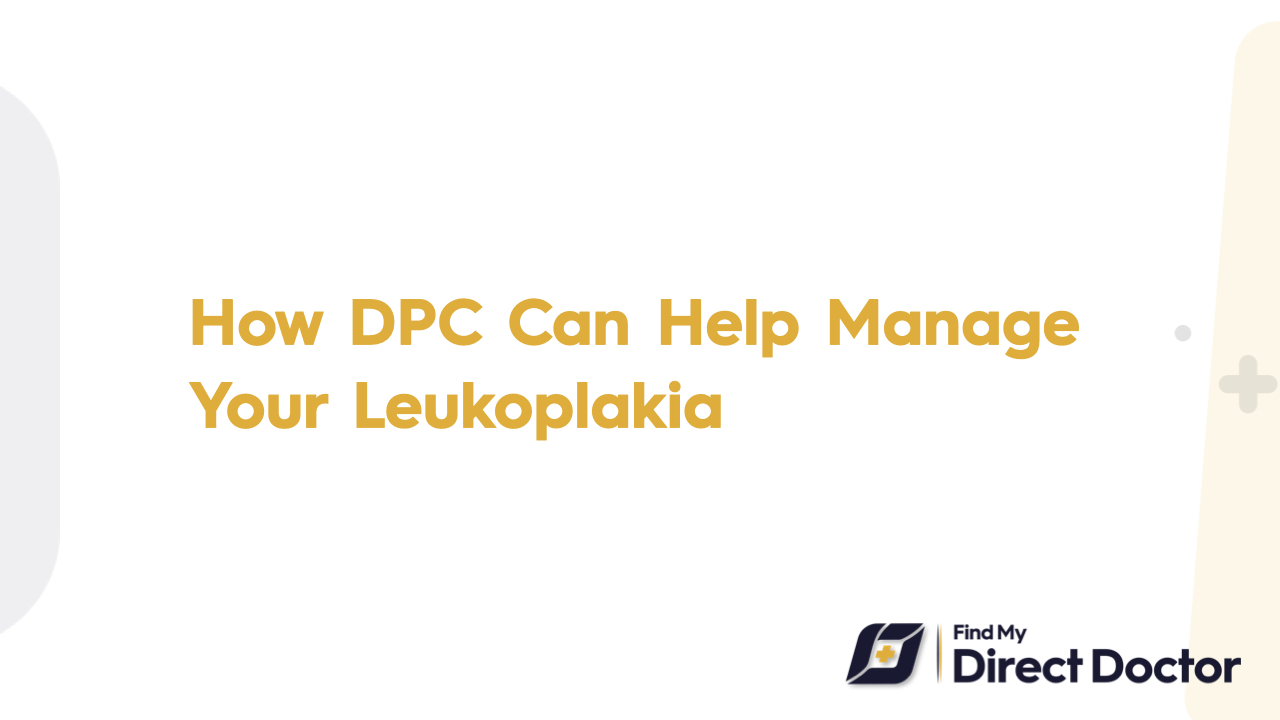



The development of thick, white patches on the gums, tongue, oral mucous membranes, or inside the cheeks is a defining feature of leukoplakia. These patches can vary in size and shape and are difficult to wipe off. Leukoplakia is frequently associated with irritation brought on by behaviors like chewing tobacco, smoking, or long-term alcohol consumption. In certain instances, the patches could also show up on the body's mucous membranes, such as the genitalia. Although the patches themselves are usually benign, the condition is classified as a potentially precancerous lesion, which means that if treatment or monitoring is not received, there is a chance that mouth cancer will develop.

Leukoplakia symptoms might vary. People may not even be aware of the patches until they are found during a routine dental or medical examination, and the disease is frequently painless. Nonetheless, some people could feel sensitive or uncomfortable, particularly after consuming particular meals or drinks. In more extreme situations, the patches could get thicker, higher, or seem ulcerated, all of which could indicate a more serious problem. Leukoplakia can develop into oral cancer if treatment is not received, especially if it is linked to tobacco use or other high-risk factors.
For the treatment of leukoplakia, Direct Primary Care (DPC) provides a thorough and individualized approach. A DPC approach enables prompt monitoring and intervention since patients have direct, ongoing access to their primary care physicians. This enables people with leukoplakia to have their condition evaluated on a regular basis, guaranteeing that any alterations in the look or properties of the patches are swiftly treated.
To assist control leukoplakia, DPC providers can do routine examinations, educate patients on lifestyle changes (such stopping smoking or drinking less alcohol), and suggest medications. For additional assessment and care, they might refer patients to experts like oncologists or oral surgeons if needed. DPC makes sure that leukoplakia is treated proactively, lowering the risk of consequences like oral cancer, by emphasizing preventative treatment and early identification.
The capacity to obtain ongoing, individualized therapy is the primary advantage of DPC for leukoplakia patients. Patients may only see a doctor in traditional healthcare models when their symptoms worsen, which could cause a delay in diagnosis and treatment. A DPC approach, on the other hand, enables early identification of any changes in a patient's condition because consumers contact their healthcare practitioner more frequently. This proactive strategy aids in identifying any issues before they become significant.
Additionally, DPC empowers patients by granting them greater authority over their medical treatment. Since there are no time or visit restrictions, DPC providers may devote their time to teaching patients about the dangers of leukoplakia, suggesting lifestyle modifications, and offering the assistance they need to cut back on alcohol or stop smoking, two significant risk factors. Furthermore, because DPC emphasizes general health and well-being, it takes into account additional variables that may affect leukoplakia, like stress, diet, and dental hygiene, all of which can hasten the disease's course.
In DPC, personalized management of leukoplakia entails a customized strategy that considers each patient's unique requirements, way of life, and medical background. DPC providers are able to monitor any changes in the patient's condition and modify treatment plans as necessary by keeping a tight and continuous interaction with them. A key component of this strategy is routine examinations, which guarantee that leukoplakia is regularly watched for indications of possible problems.
DPC providers can provide advice on lifestyle changes that can help stop the illness from getting worse in addition to medical monitoring. In order to promote oral health, this may entail assisting patients in quitting smoking, cutting back on drinking, and altering their diet. DPC physicians might work with specialists to coordinate care for patients with more severe leukoplakia in order to investigate more rigorous therapies or, if required, biopsies. The finest support and intervention for each patient's unique circumstances are guaranteed by DPC's individualized treatment.
Previous Post